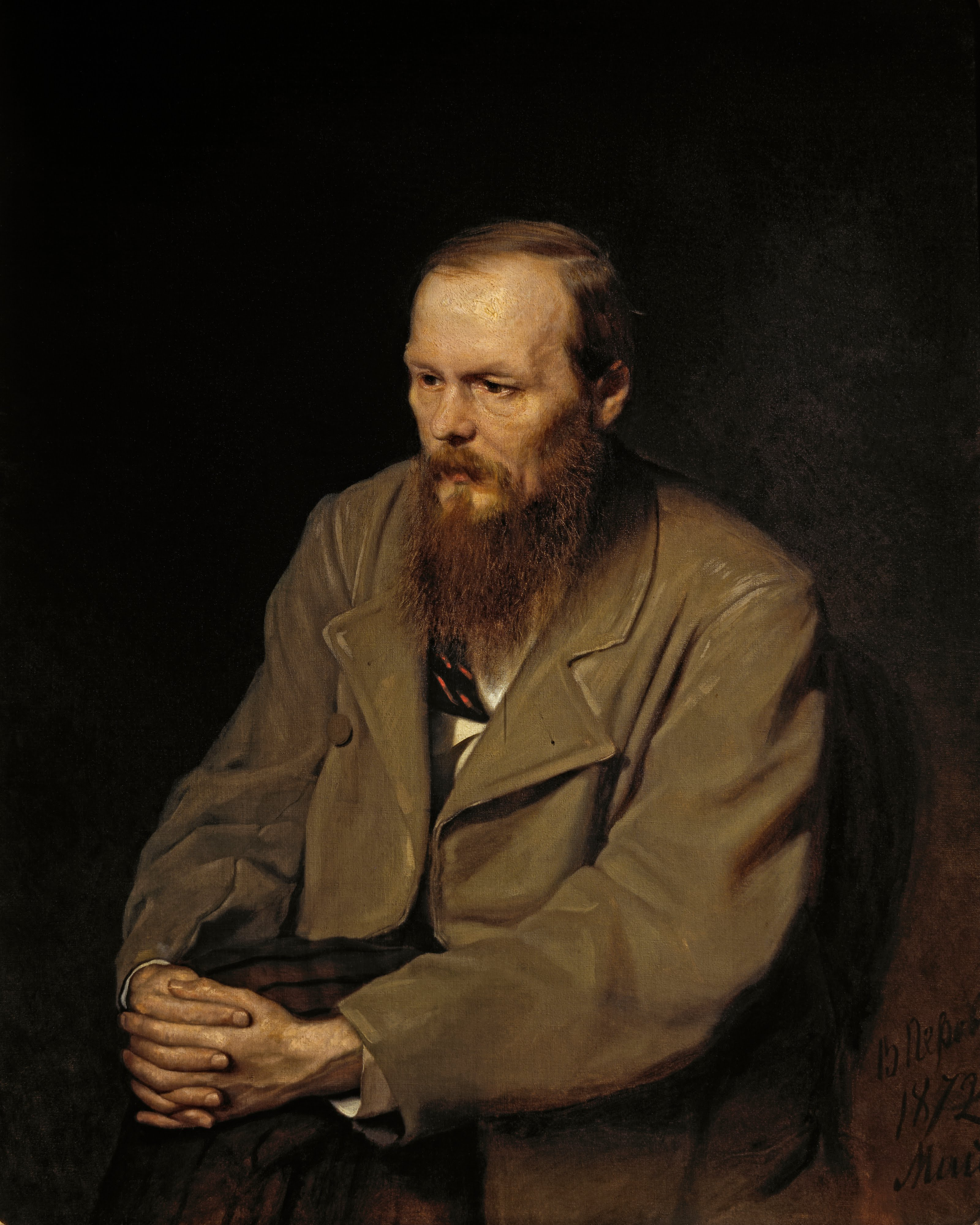Book XI, ch. 4 (trans. Pevear and Volokhonsky)
The Brothers Karamazov (1879–1880)
Fyodor Dostoyevsky Quotes
“Do a man dirt, yourself you hurt.”
Crime and Punishment (1866)
A Writer's Diary, Volume 1: 1873-1876 (1994), p. 734 http://books.google.com.br/books?id=38xQHS4h0yEC&printsec=frontcover&hl=pt-BR&source=gbs_ge_summary_r&cad=0#v=onepage&q&f=false
“Who consciously throws himself into the water or onto the knife?”
The Idiot (1868–9)
Part 2, Chapter 9 (pages 108-109)
Notes from Underground (1864)
“If they drive God from the earth, we shall shelter Him underground.”
The Brothers Karamazov (1879–1880)
The Brothers Karamazov (1879–1880)
Part 1, Chapter 7 (page 20)
Notes from Underground (1864)
Part 1 Chapter 3 (page 14)
Notes from Underground (1864)
Source: The Dream of a Ridiculous Man (1877), V
The Brothers Karamazov (1879–1880)
“Russia was a slave in Europe but would be a master in Asia.”
As quoted in "Dilemmas of Empire 1850-1918: Power, Territory, Identity" by Dominic Livien in Journal of Contemporary History, Vol. 34, No.2 (April 1999), pp. 180
“Nothing in this world is harder than speaking the truth, nothing easier than flattery.”
Crime and Punishment (1866)
“It's easier for a Russian to become an atheist than for anyone else in the world.”
Part 4, Chapter 7 http://books.google.com/books?id=WuAKAQAAMAAJ&q="It's+easier+for+a+Russian+to+become+an+atheist+than+for+anyone+else+in+the+world"&pg=PA548#v=onepage
The Idiot (1868–9)
The Idiot (1868–9)
The Brothers Karamazov (1879–1880)
The Brothers Karamazov (1879–1880)
Part 1, Chapter 7 (page 23)
Notes from Underground (1864)
The Brothers Karamazov (1879–1880), The Grand Inquisitor
The Brothers Karamazov (1879–1880), The Grand Inquisitor
The Brothers Karamazov (1879–1880), The Grand Inquisitor
Source: The Dream of a Ridiculous Man (1877), V
The Idiot (1868–9)
The Idiot, Part IV., Chapter V.
General, The Idiot (1868–9)
All the righteous, all the saints, all the holy martyrs were happy.
Book II, ch. 4 (trans. Constance Garnett)
General, The Brothers Karamazov (1879–1880)
Source: General, The Dream of a Ridiculous Man (1877), I
General, The Idiot (1868–9)
Part 1, Chapter 9 (page 32)
General, Notes from Underground (1864)
General, The Insulted and the Injured (1861)
The House of the Dead https://play.google.com/store/books/details?id=8PhfAAAAMAAJ&rdid=book-8PhfAAAAMAAJ&rdot=1 (1915), as translated by Constance Garnett, p. 16
General
